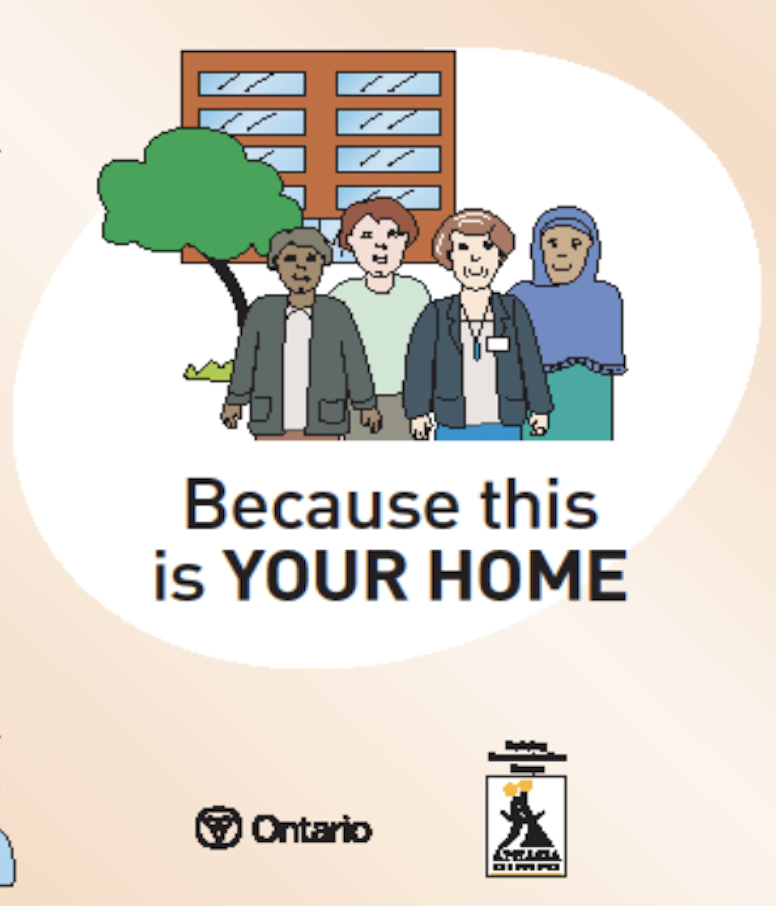In 2006, after several dramatic reports of abuse of residents in long-term care who were unable to report what had happened to them, a pictographic version of a Resident’s Bill of Rights poster was developed by the Aphasia Institute. This version gives patients with a communication problem or language barrier access to the information if they can’t understand it in written text format.
The use of specially designed pictographs to facilitate healthcare conversations is part of an evidence-based methodology called Supported Conversation for Adults with Aphasia (SCA™) developed at the Aphasia Institute. SCA™ is a set of techniques that ensures that people who “know more than they can say” can accurately exchange information, opinions and feelings, and feel that their inherent competence is acknowledged.
This pictographic version of the Ontario Residents’ Bill of Rights poster was designed by the Aphasia Institute and funded by the Ontario Ministry of Health and Long-Term Care, through the Seniors Health Research Transfer Network (SHRTN).
The poster itself is free of charge to download for all long-term care homes in the province of Ontario.





